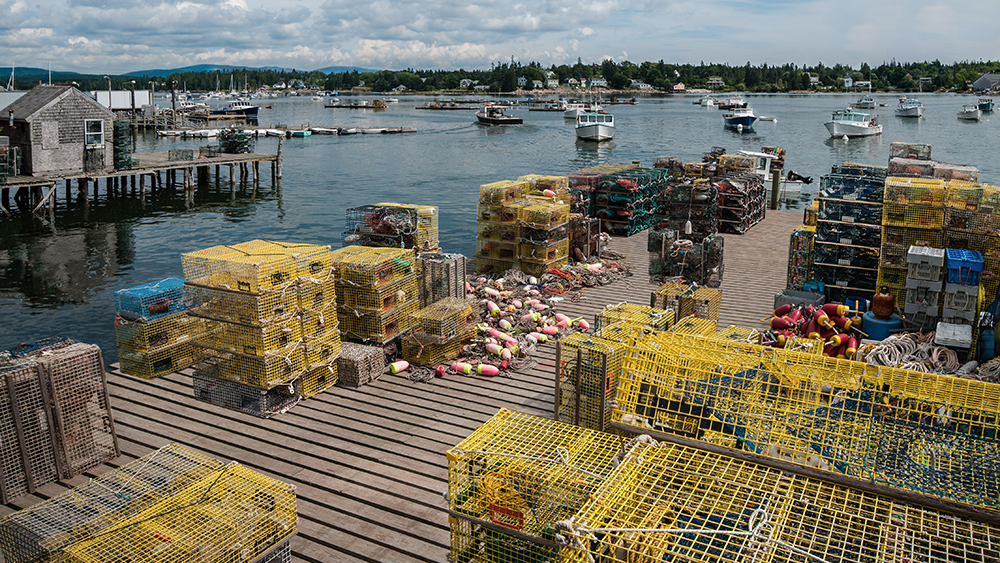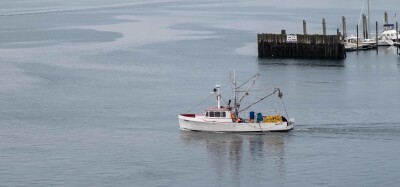The state of Maine has plenty of regulations for its lobster fishery. Some examples: Lobstermen are limited to the number of traps on a trawl — anywhere from 2 to 12 traps, depending on where they are fishing. All egg-bearing lobsters must be V-notched and released. All traps must have an unobstructed escape panel.
Then there are the lobstermen’s regulations. These are mostly in the form of territorial boundaries that are demarcated by points of land and buoys. The boundaries aren’t printed out; you won’t find them on a website, and they vary from harbor to harbor. But set your traps beyond a certain boundary line, accidentally or not, and there’s a good chance you will find out about it.
The message may come in several forms. The more benign of the options is relatively harmless: You haul back your traps, and the doors have been opened and the lobsters removed. At the other end of the spectrum, boats have been sunk, docks burned and lobstermen shot.
One Stockton Springs lobsterman reported to the Maine Marine Patrol that lines to his traps were being cut in Penobscot Bay. Subsequent investigations found that his traps had been cut “on numerous occasions between August and October 2018.” That cost William Nichols at least 71 traps.
According to reports in the Bangor Daily News and the Portland Press Herald, Walter Foster of Castine and Nicholas Wood of Penobscot, along with Wood’s two crewmen, Samuel Stearns of Penobscot and Nicholas Jennings of Castine, have been arraigned in court and charged with molesting lobster gear. That’s a class D misdemeanor and could result in a $2,000 fine and a year in jail.
At this point, none of the four has said why the gear was cut. Whether they will admit to the deed, as did three lobstermen who sank another lobsterman’s boat on Sept. 1, 2016, because they thought the boat’s owner “was hauling their gear,” remains to be seen.
There’s no evidence that Nichols was hauling any lobster traps but his own, but you can see where a territorial component might be at play. Look at a chart of Penobscot Bay, and you'll find Nichols' port of Stockton Springs is across upper Penobscot Bay — and not that far — from Castine, where, presumably, both Foster and Wood fished out of.
Besides possible jail time and a fine, Wood and Foster have had their licenses suspended for three years. The violation also requires that Nichols receive an amount equal to twice the lobster trap’s value. 71 traps are worth $3,692, so that would make $7,384 in restitution.







